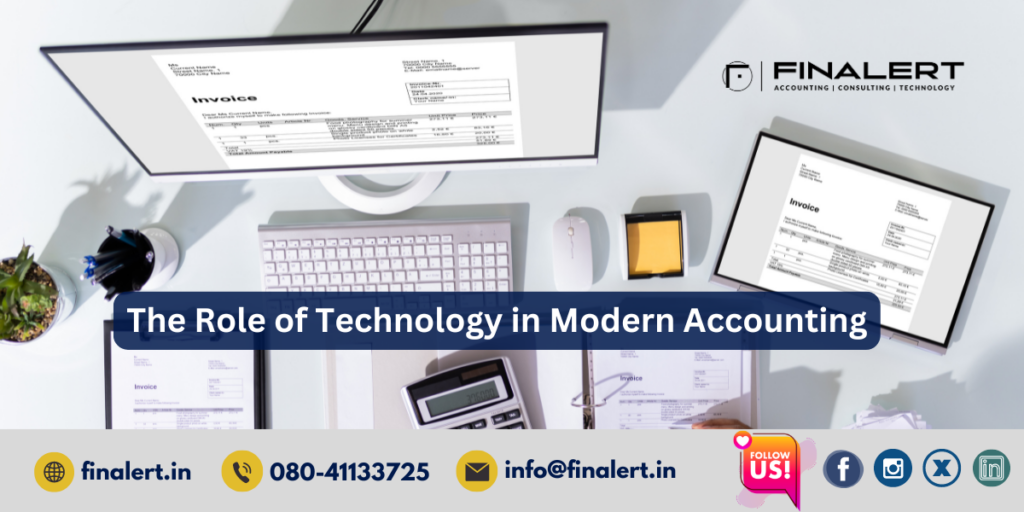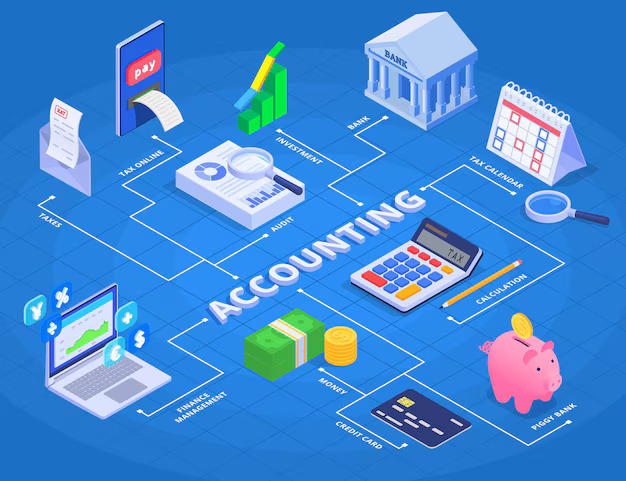
Finalert India is a leading finance and accounts company based in Bangalore, dedicated to providing comprehensive financial planning and advisory services to both individuals and businesses. Our mission is to help clients achieve financial stability and growth through personalized financial strategies, leveraging the latest technological advancements. In today’s fast-paced world, technology plays a crucial role in transforming various industries, including accounting. This article aims to explore the significant impact of technology on modern accounting practices and how Finalert India can assist in leveraging these advancements to achieve your financial goals.

One of the most significant contributions of technology to modern accounting is automation. Automated accounting systems streamline various processes, reducing the time and effort required for manual bookkeeping and data entry. For instance, cloud-based accounting software like QuickBooks and Xero allow for real-time tracking of financial transactions, automatic categorization of expenses, and generation of financial reports with just a few clicks.
Example: A small business using automated accounting software can reduce its bookkeeping time by up to 80%, allowing the business owner to focus on strategic planning and growth.
Automation also minimizes human errors, ensuring more accurate financial data. This accuracy is crucial for making informed financial decisions and maintaining compliance with regulatory requirements. Additionally, automated systems enhance data security through encryption and secure backups, protecting sensitive financial information from unauthorized access and cyber threats.
Technology has introduced advanced data analytics and business intelligence tools that enable accountants to derive actionable insights from vast amounts of financial data. These tools can analyze historical data to identify trends, forecast future financial performance, and provide valuable insights for strategic decision-making.
Example: A company can use data analytics to predict cash flow trends, optimize inventory management, and identify cost-saving opportunities, thereby improving overall financial efficiency.
Moreover, business intelligence tools facilitate the visualization of complex financial data through dashboards and reports, making it easier for stakeholders to understand the financial health of the organization. This enhanced visibility enables proactive financial planning and better resource allocation.
Blockchain technology is revolutionizing the accounting industry by enhancing transparency, security, and traceability of financial transactions. Blockchain’s decentralized ledger system ensures that all transactions are recorded in a tamper-proof manner, reducing the risk of fraud and errors.
Example: A blockchain-based accounting system can provide an immutable record of all financial transactions, which is particularly beneficial for audit purposes and regulatory compliance.
By enabling real-time verification of transactions, blockchain technology also improves the efficiency of financial audits. Auditors can access a transparent and verifiable record of transactions, reducing the time and effort required for audit procedures. This increased transparency fosters trust among stakeholders and enhances the credibility of financial statements.
The integration of technology in accounting offers numerous benefits, which include:
The role of technology in modern accounting is undeniable, driving efficiency, accuracy, and transparency in financial processes. Finalert India is committed to leveraging these technological advancements to provide top-notch financial planning and advisory services. By embracing technology, we help our clients achieve their financial goals with greater ease and confidence.
For personalized financial planning services, contact Finalert India today. Visit our website or follow us on LinkedIn and Facebook for more information and updates.
Similar Articles
No results available
ResetGet free expert financial advice—book your online consultation with Finalert now!
No results available
ResetEmpower your organization with expert compliance solutions from Finalert India. Contact us today for a free consultation!
Ready to thrive? Connect with Finalert India today and let’s succeed together in the dynamic Indian market.